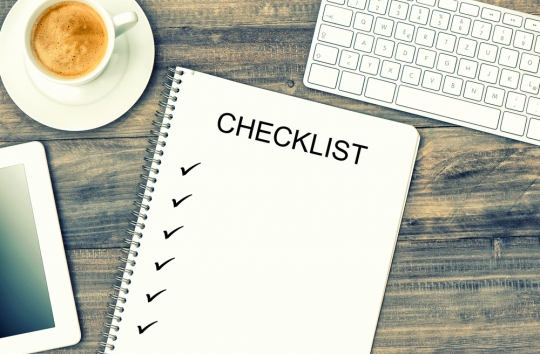Moving abroad can be a busy time in your life, to say the least – there’s plenty to organise, time seems to tick by quicker than ever, and a few extra pairs of hands wouldn’t go amiss! It can be quite a stressful time, but as the final layers of tape go on to seal the boxes, and you’re checking and double checking your passport is in your carry-on, it can be easy to relax and forget something. Our currency provider partners FC Exchange have written a handy checklist for you to tick off, so you don’t forget some of the most important things to do ahead of your move.
Keep the documents you need to hand
Perhaps this is the most obvious part of a move, but making sure you have your passports, visas, and travel documents ready to present at customs and other places in the first few weeks of being in a new country is essential.
You might need to present them for a number of different things, from registering for medical care to visas, so having them all in a wallet and easy to reach while you’re travelling and settling in will be a great start.
Get your medical care organised
Private medical insurance can be an easy one to forget, but it’s definitely worth researching healthcare in your chosen country and putting a plan in place if you’ll need one to access medical professionals and treatments. Some countries have excessive healthcare fees, and an emergency trip to a hospital or even a ride in an ambulance can set you back a considerable amount.
Make sure you cover all your bases, so routine trips to the GP and emergency care costs are covered. Some nations even require you to have medical insurance before they issue a visa!
Get yourself an M.O.T before you leave
It can be a good idea to make sure you have a check-up before you go. Get those last-minute cavities filled, visit your doctor for a once-over, and make sure you’re up to date with vaccinations for the country you’re moving to.
Research medical facilitates near you to see how far away you are and how easy it is to get an appointment. Some countries allow you to refer yourself to a specialist, and others are so relaxed when it comes to time keeping that they schedule several people in for the same appointment in case someone doesn’t turn up.
Emergency numbers at the ready
It’s worth spending 10 minutes researching emergency numbers for your new home so that you can store them on your phone or in your diary or travel documents. You’ll need emergency services numbers (for both immediate and less immediate assistance), and any other vital digits you can think of. It’s best to put this in everyone’s phones, whether it’s you and a partner, or a larger family with kids.
Update your contact details
This means you might spend a lot of time on the phone, and while time-consuming, it’s an important job to do.
If you’re a driver, contact the DVLA and get your new details on their system, as well as contacting your car insurance company to adjust your insurance details if you’re taking your car with you, if not then cancel your insurance to make sure you’re not paying any unwanted direct debits while abroad.
You’ll also need to speak to credit card companies, the passport office, the post office to get your mail redirected, and any other institutions you can think of that might require an update in your details.
Prep the pets
A lot of people take their furry family members with them when relocating abroad, so if you’ve got some pets to take, make sure you’ve got their inoculations covered, and change their microchip details so that their new address is with them if they get lost early on. Order new pet tags with your new address on too.
Create a cash flow plan
Moving abroad likely means a new job, a different income, and different living costs. Plan out how much you’ll earn and what your outgoings will be, and convert the numbers into sterling so you have a rough idea of how much things will cost and how much you’ll be left with at the end of the month.
If you can take some extra savings with you as backup it’s a great idea as there’s likely to be something you haven’t planned for crop up, or it might just be more expensive to live abroad than you’d estimated.
Get your currency ready
If you’re making a move abroad, you need to consider how you’ll send your money abroad to pay for a house purchase. You might also want to send your savings or pensions overseas or send money back home on a regular basis.
Speaking to a currency specialist can be a great way to figure out when to send your money so you can maximise your funds. As exchange rates move all day, the currency market can be tricky to navigate, so having an expert by your side can be a great help.


